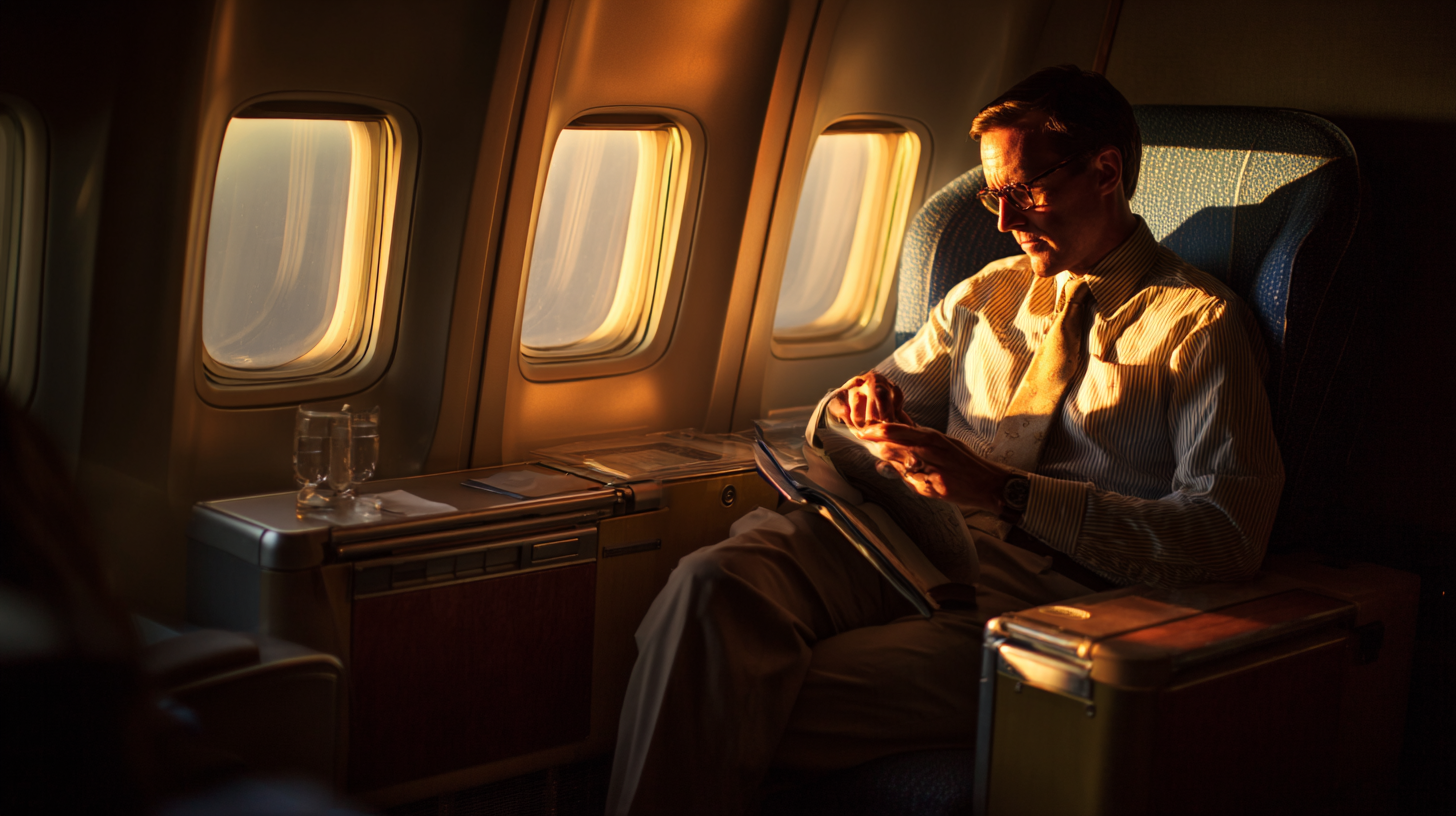Business Travel 101 for Seat5A Flyers

When I talk about business travel, I’m referring to journeys that take me beyond my usual commute for work-related purposes—be it attending conferences, visiting clients, or scouting new opportunities. Even in this era of video conferencing, I’ve observed that in-person connections remain invaluable for truly understanding clients, cultures, and markets. I’m also fascinated by how technology shapes these trips, from sophisticated booking platforms to augmented reality planning tools that could soon revolutionize the way we travel.
What Is Business Travel?

By definition, business travel refers to any journey taken on behalf of a company that extends beyond routine office commutes. I see it as the heartbeat of many organizations, especially for those of us who need to attend trade shows, build international partnerships, or simply explore fresh markets. In my own experience, heading overseas for a two-day seminar can feel like a whirlwind, but it often yields insights and contacts that simply can’t be replicated via email.
I’ve learned that tax implications can significantly shape how these journeys are financed. According to current IRS guidelines in 2025, expenses become deductible when trips are deemed “ordinary and necessary” for business and take you away from home overnight. This is especially important for smaller businesses or self-employed travelers, who might otherwise miss out on valuable deductions. Still, it’s crucial to document everything. I keep a detailed travel journal, storing receipts and recording mileage, to stay on top of what’s deductible and what’s not.
According to a 2024 report by the Global Business Travel Association, the global business travel sector is poised for steady growth through 2026, underscoring that we’re far from replacing face-to-face engagements. Even as more jobs become partially remote, the value of shaking hands and exploring new environments firsthand remains significant.
Why It Matters for Frequent Flyers

Frequent flyers know what it’s like to navigate intricate airline miles, reward systems, and corporate rates. I love the thrill of accumulating miles and turning them into upgrades or free flights. According to industry data released last year, nearly 65% of business travelers strategically book flights to maximize points, hoping to cash in on those exclusive lounges or elite statuses later. And beyond the rewards, in-person meetings can fast-track relationships in ways that virtual calls often cannot.
I’ve witnessed companies ramp up their travel budgets, especially for client-facing roles. In many cases, nothing beats a real conversation where I can read body language and gauge immediate reactions. A recent Harvard study projected that roughly 60% of businesses will increase their travel commitments in 2025, showing that, despite our digital leaps, boots-on-the-ground approaches still matter. Whether it’s a domestic trip or an international flight, business travel remains integral to forging lasting partnerships.
Maintaining productivity in transit is no small feat. Selecting the right airline, gathering all necessary gadgets, and planning in-flight tasks can make the difference between wasted hours and purposeful progress. Personally, I map out my in-flight schedule—email time, reading research materials, and even downtime—so I can land ready to tackle the next meeting.
Tax Deductions and Corporate Policies

A major perk of business travel lies in potential tax deductions like airfare, lodging, and meals. However, there’s a 50% limit for meal deductions, and I’ve found that corporate policies often mirror these IRS constraints. Many large companies adopt standardized travel guidelines, ensuring employees know what’s reimbursable. For instance, one policy I encountered set a daily meal allowance that discouraged overspending, but still covered realistic costs in big cities where prices are steep.
Most organizations now use automated expense management applications. These platforms streamline reimbursement and offer real-time currency conversions, which help me avoid personal losses when traveling abroad. According to a 2023 survey by TravelTech Insights, around 70% of Fortune 500 companies rely on dedicated tools to manage travel expenses, highlighting a shift toward transparency and efficient recordkeeping.
For self-employed freelancers or startup founders, business travel demands extra vigilance. I recommend keeping a meticulous record by using apps that track flight details, accommodation fees, and even smaller costs like Wi-Fi on the plane. This attention to detail can make tax season smoother and ensure you’re taking advantage of every legitimate deduction.
The Upsides and Downsides

One of the best parts of frequent travel is the cultural exposure—it’s incredible to discover how different regions approach hospitality and business etiquette. I’ve strengthened my professional circle through chance encounters in airport lounges or by striking up conversation on a flight. Traveling also lets me experience the innovative side of aviation, from emerging electric planes to advanced cabin designs that accommodate long-haul comfort.
On the flip side, constant motion can be draining. Jet lag, missed family milestones, and the stress of juggling multiple time zones can take a toll on physical and emotional health. I remember a particularly grueling week with stops in New York, London, and Tokyo—all within five days—leaving me exhausted despite the valuable meetings. According to the American Academy of Sleep Medicine, frequent flyers are more prone to chronic sleep disruption, which can affect cognitive function.
Still, many of us continue to say the rewards outweigh the challenges. It might be the adrenaline of stepping off a plane in a new city or the excitement of trying a local dish halfway around the globe. With proper planning and realistic expectations, business travel can enrich both professional goals and personal growth.
Top Picks for Successful Trips

As someone who likes to mix efficiency with a bit of adventure, I rely heavily on advanced travel management systems for booking flights and hotels. Some platforms offer built-in policy compliance checks, ensuring I stick to my budget and fulfill corporate guidelines. This saves me from nasty surprises when the expense report is due. In fact, a 2024 study by Corporate Travel Review found that companies using these systems reduced travel overspending by an average of 25%.
When choosing an airline, it pays to explore loyalty programs from big names like Delta, American, and United. I’ve found that airline alliances and co-branded credit cards can amplify point earnings, which might translate to upgrades, lounge access, or even free companion tickets. If you travel frequently, these perks can be game-changers for both comfort and cost.
I also recommend leaving some buffer to enjoy what’s been nicknamed “bleisure”—combining business obligations with leisure time. Whether it’s grabbing a local coffee in a city square or catching an early museum tour before your 10 a.m. meeting, small moments of personal exploration keep me curious and energized. After all, business travel isn’t just about getting tasks done; it’s about embracing the journey.
Final Thoughts

Business travel is more than a logistical exercise; it’s a vibrant part of my professional life. The connections formed while breaking bread with international partners or the insights gleaned from a spontaneous chat with a fellow passenger can shape entire career trajectories. With growing options for maximizing rewards and harnessing technology, the skies are increasingly accessible, even though the rigors of travel still require mental and physical stamina.
It’s crucial to prepare smartly, research thoroughly, and keep a clear sense of purpose before taking off. Understanding your company’s policies, leveraging digital tools, and being mindful of potential expenses and time zone changes are all part of the mix. Despite the challenges, when executed well, business travel can be one of the most rewarding facets of a career.
Amelia Yeaher’s Take
From experimenting with emergent travel innovations to witnessing firsthand how face-to-face encounters forge unforgettable connections, business travel continues to surprise and inspire me. I’ve embraced the blend of rigorous planning and spontaneous adventure, and I believe it pushes us to stay open-minded, focused, and resilient on every new journey.
In my view, success in business travel rests on curiosity and courage—an eagerness to venture beyond comfort zones and a readiness to adapt when real-life experiences don’t match the itinerary. It’s how we grow professionally, culturally, and personally in an ever-connected world.
Seat5A is your window to explore more insights on the latest travel tips and aviation trends.






